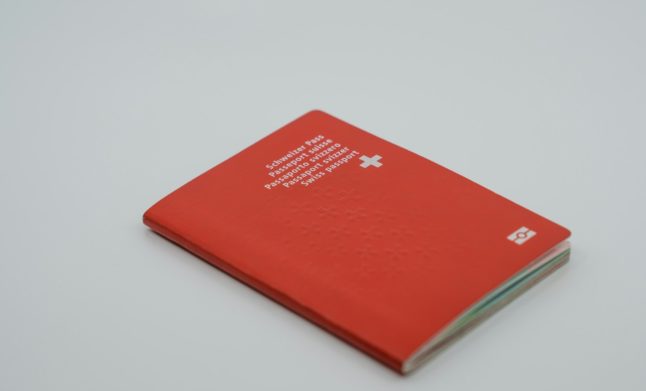1) Hundreds protest in Zurich over Trump's visit to Davos
.jpg)
In January, more than a thousand people protested in central Zurich against the planned arrival of US President Donald Trump in Switzerland for the World Economic Forum (WEF). It remains to be seen if the same will happen again when Trump returns to Davos next month.
2) Swiss cooks ordered to stun lobsters before boiling
At the start of this year, the Swiss government ordered an end to the common culinary practice of throwing flailing lobsters into boiling water, ruling that they must be knocked out before they are killed – part of a wider overhaul of Swiss animal protection laws.
3) Tearful Federer wins Australian Open for 20th Slam title

It's not a Grand Slam tournament if Roger Federer doesn't cry. Photo: AFP
Tennis legend Roger Federer has been an unofficial ambassador for Switzerland during his two decades on the men's tour but his 20th slam title in Melbourne in January was particularly special.
4) Swiss vote against plan to scrap compulsory TV licence fee
The Swiss referendum on whether to abolish obligatory TV and radio licence fees was one of several referendums covered with interest in other countries in 2018. In the end, over 70 percent of voters rejected the move which would have starved the Swiss public broadcaster and subsidised regional media outlets of much-needed funds.
5) David Goodall commits assisted suicide in Switzerland, aged 104
The story of Australian scientist David Goodall, who came to Switzerland in March to end his life using one of the country's assisted suicide services, was one of the most read on The Local this year.
6) Swiss stir up controversy with 'double eagle' gesture

Xherdan Shaqiri makes the “double eagle” gesture. Screengrab: BBC
When Swiss footballers Xherdan Shaqiri and Granit Xhaka, both of whom have a Kosovo Albanian background, controversially celebrated their goals in a World Cup match against Serbia by making a hand gesture representing the “double eagle” of the Albanian flag, it captured global headlines and ignited debate in Switzerland about the issue of dual nationality.
7) One Swiss cyclist killed and one hospitalized in Tajikistan attack
Four cyclists were killed and three wounded in Tajikistan in a vicious attack on July 29th. The Tajik government attributed responsibility to the outlawed Islamic Renaissance Party of Tajikistan, while Islamic State also claimed responsibility.
8) Twenty dead in WW2 vintage plane crash in Switzerland

The crash site of the Ju-52 on Piz Segnas. Photo: AFP
A Junker Ju-52 HB-HOT aircraft, built in Germany in 1939, crashed into the Piz Segnas mountain in Switzerland in August, killing all 20 people on board. Other Ju-52 planes operated by the same airline initially resumed flights soon after the August accident but have since been grounded over possible safety issues.
9) Muslim couple denied Swiss citizenship over handshake refusal
In August, the Swiss city of Lausanne blocked a Muslim couple's bid to become Swiss nationals over their refusal to shake hands with members of the opposite sex in a decision that was covered extensively by the international press.
10) Russian agents planned to spy on Swiss chemicals lab – report
When it emerged that two suspected Russian agents who were planning to spy on a chemical laboratory in the Bernese Oberland region of Switzerland had been arrested in the Netherlands, the news sparked a diplomatic row between Bern and Moscow.
11) Watch: US tourist's harrowing hang glider flight in Switzerland

The story of US tourist Chris Gursky's horrific hang glider flight near the Swiss tourist centre of Interlaken made international headlines for all the wrong reasons after the American's pilot during the tandem flight forgot to strap him in. What followed was two very long minutes of terror – all captured on video.
12) 'Switzerland is playing a very dangerous game on EU deal': foreign minister
The world watched on with interest this year as Switzerland and the European Union struggled to agree on how to move forward with a planned framework agreement on bilateral relations. Many saw the fraught negotiations, during which Brussels refused to back down on key demands, as an indication of how the situation might play out for the UK post-Brexit.
Read also: Only in Switzerland: Relive the 10 most Swiss stories of 2018



 Please whitelist us to continue reading.
Please whitelist us to continue reading.